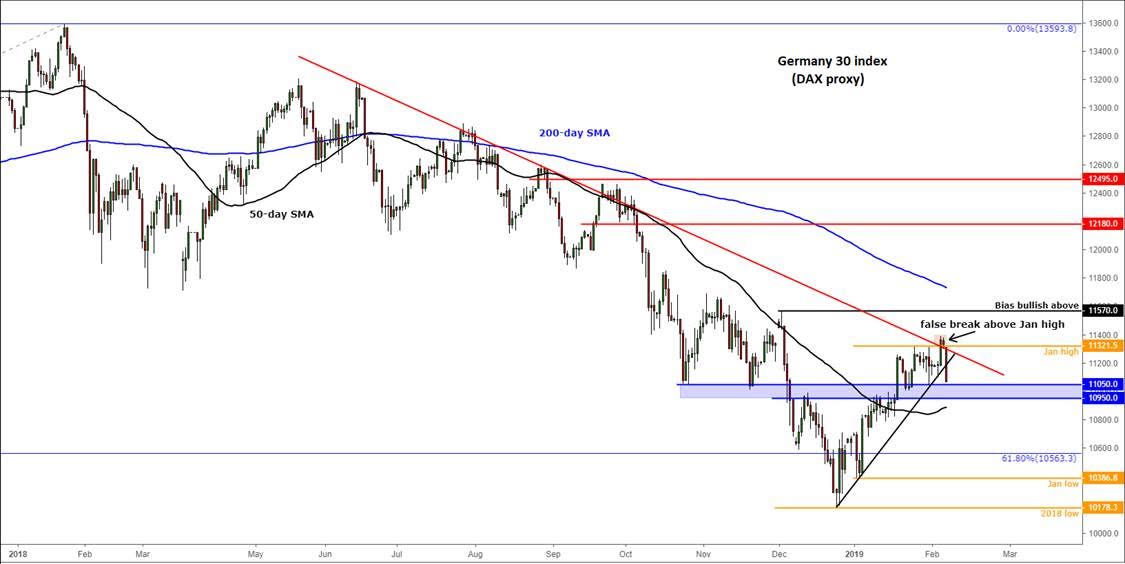“Today’s price action has the classis “risk-off” feel to it,” writes Fawad Razaqzada, Market Analyst, Forex.com.
Today’s price action has the classis “risk-off” feel to it. The major global indices have fallen sharply, led by Germany’s DAX, which was still printing new lows on the day at the time of this writing. U.S. indices were also coming under pressure after a brief pop at the open failed to sustain itself. As a result of the sell-off, gold is higher with the precious metal finding additional support from central banks turning simultaneously dovish.
After the Fed’s U-turn last week, we have seen the Royal Bank of Australia deliver a dovish outlook on rates and now the BoE has indicated that rates will remain low for even longer due to Brexit uncertainty. A few weeks ago, the ECB appeared a tad more dovish than expected. The fact we are seeing major central banks turn dovish at the same time is worrying for the global economy and potentially good news for noninterest-bearing and low-yielding assets such as gold.
DAX leads drop on growth concerns
As mentioned, the German DAX index has led the declines today with a drop of over 2%. After a positive start to the week, the major global equity indices have turned negative again as investors weigh the impact of renewed central bank dovishness against increasing signs of turbulence for the global economy. Underscoring the growing risk aversion, risk-sensitive commodity currencies have also started to retreat while safe-haven Japanese yen and Swiss franc have gained ground. But it is not full-on risk-off yet as the losses for the indices are not too severe and they vary considerably from one region to another. Also, some of the weakness in commodity currencies can be explained away by recent fundamental developments. For example, the RBA Governor has mentioned the prospects of a rate cut, which has weighed heavily on the Aussie, while in New Zealand the latest employment data disappointed expectations overnight, hurting the kiwi. Still, with consistently weak growth figures coming out of China, combined with recessionary numbers from Germany and not-so-strong data from other European nations, things could turn ugly for stocks in the coming days.
Regardless of what happens from a macro point of view, so long as the major indices hold below their January highs is bearish. In January, global stocks rebounded strongly but they never made good their losses from the month before. And now we are seeing some of the major indices, such as the DAX, starting to breakdown again after a brief rally above January’s high failed to hold. Price action is therefore quite bearish. We expect volatility to rise further in the day ahead.

Source: TradingView and FOREX.com











